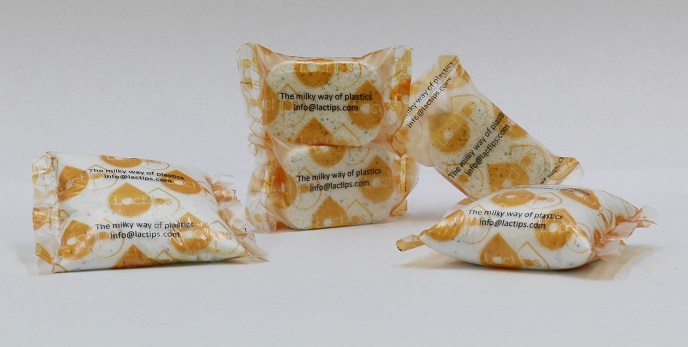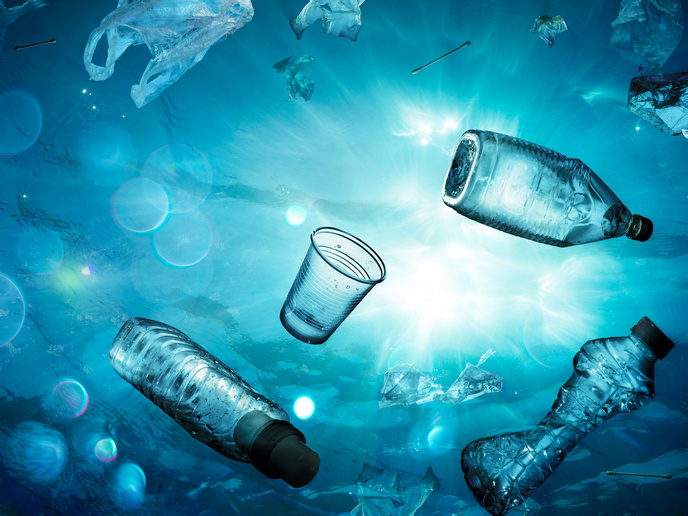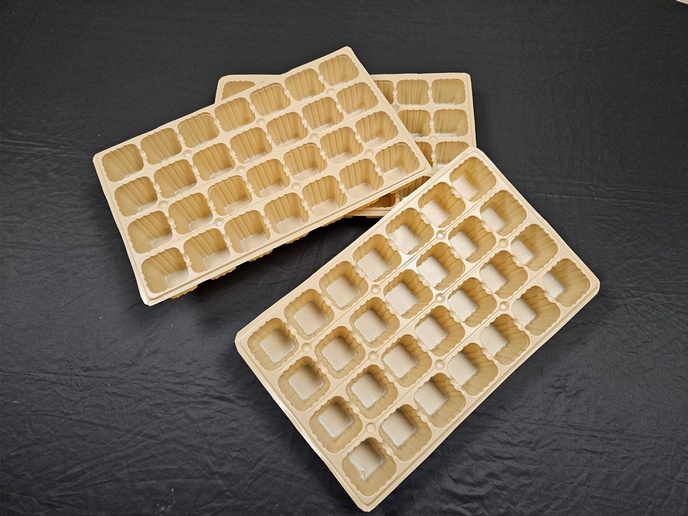Milk-based plastics plastics to reduce environmental damage
With each year that passes, bioplastics keep snagging more market shares. But they are still marginal: they currently account for only around 1 % of Europe’s total plastic production, and only further research and development can help overcome remaining barriers to a wider adoption. In the context of growing concern over marine plastic pollution, one major such barrier is the lack of water solubility. Most attempts at creating water-soluble plastics have so far been relying on petrol-based polymers, while the Holy Grail could in fact have laid all this time in milk proteins. Got milk proteins? Lactips, a French SME built around the concept of building thermoplastic pellets from milk protein, is strongly investing in the production and commercialisation of their first applications. Judging by the EUR 3.7 million they raised in 2018, they are clearly onto something. “Our product is the only thermoplastic based on sound and clean biomaterials (bio-sourced and biodegradable) in the world to be water-soluble at room temperature,” says Jean-Antoine Rochette, CEO of Lactips, the company behind the ECOLACTIFILM (A Water-Soluble Packaging to Unlock New Markets) project. “To produce it, we upgrade declassified milk’s main protein called casein, which used to be destroyed, to create a processable polymer. Casein is renewable, biodegradable and compostable, and it allows for developing a bioplastic with no significant aquatic toxicity.” Ever noticed how detergent tablets for dishwashers are usually packed in soluble plastic packaging? Thanks to Lactips, this PVA-based soluble film which dissolves but doesn’t biodegrade in water or in soil can be replaced with Ecolabel and Ecocert-certified milk protein-based plastics. Unlike PVA, whose aerobic biodegradation is limited to 13 % in 21 days in water, Lactips’s alternative can reach almost 100 % biodegradation within 28 days. “Everything in our product was conceived with environmental impact in mind: from the sourcing of materials to the end of life of the product, including its production (a Life Cycle Analysis is currently in progress). Our temperature of transformation to make pellets is the only energy used over the whole life cycle, and this temperature is twice as low as that required for PVA transformation,” Rochette explains. To the market and beyond Sales began in the last quarter of 2018, and Lactips and ULRICH-Natürlich have already agreed on a first set of orders. The German eco-friendly cleaning and care products manufacturer intends to use the patented technology for its dishwasher tablets. “To use Lactips is a great adventure. The advantage for us and the customers will be the plastic-free film, that doesn’t put any poison into the water. So, the customers are also able to use tabs, packed in a healthy film, and don’t need to worry about the ingredients,” says Klaus Röhrle, Head of R&D at ULRICH-Natürlich. Detergent tablet packaging is just an example of Lactips’s potential. The company is already contemplating new markets such as construction, dyes, the textile industry, the agro-chemical sector and the food market. Lactips plans to set up a 2 500 m2 plant in its region soon, as part of its 100 % ‘Made in France’ strategy, and intends to further strengthen its production capacity. “We are providing solutions to societal needs, protecting the planet, especially the oceans, as well as fulfilling the plastic industry’s requirements. Born from patented scientific and technological expertise, our material combines social, environmental and economic benefits to lay the foundations of a virtuous industry,” Rochette concludes.







